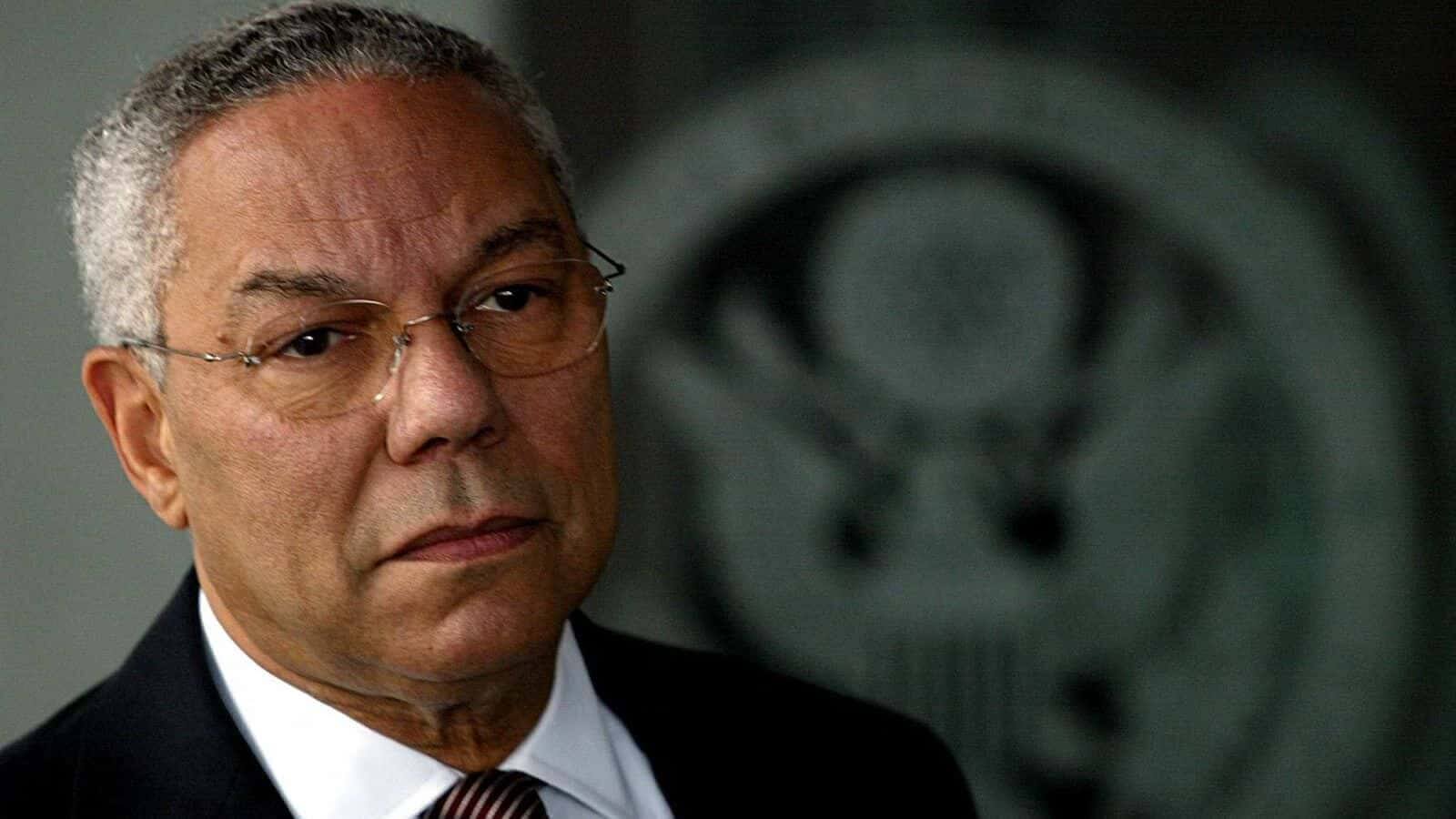Colin Powell, the United States’ (US) first Black secretary of state and chairman of the Joint Chiefs of Staff, died from complications resulting from COVID-19 on Monday. Powell was 84 years old and was already suffering from Parkinson’s disease and multiple myeloma, a cancer of plasma cells that deteriorates the body’s immune response.
Powell, who was a former Vietnam war veteran, held many leadership positions in multiple Republican administrations that helped shape American foreign policy in the last few decades. Here’s a brief overview of the late diplomat’s foreign policy legacy:
9/11
This highlight of Powell’s time as secretary of state was the aftermath of the September 11 terror attacks in 2011. He was the first senior American official to publicly blame Osama bin Laden’s al-Qaeda network.
Following the attacks, Powell visited Pakistan to meet with then-President Pervez Musharraf and demanded that Islamabad cooperate with the US in targeting bin Laden’s Afghanistan-based group, which also had a known presence in Pakistan. Powell also sought help from other neighbouring countries, including discreetly from Iran, in furthering the US government’s war on terror. The US’ military presence in Afghanistan only came to a close this August, demonstrating the far-reaching impact of the decisions made under the Bush administration.
Powell Doctrine
Based on his experiences in Vietnam, Powell devised a set of questions leading up to the Iraq War during the Bush era that must be answered in the affirmative in the event that the US goes to war.
These included:
- When the objective is important and clearly defined.
- When all nonviolent means have failed—only as a last resort.
- When military force can achieve the desired political objective.
- When the costs and risk are acceptable, in terms of expected gains.
- When the consequences have been thought out.
Iraq
Powell contradicted his own doctrine and repeatedly defended Bush’s decision to take military action in Iraq, including his infamous address at the United Nations Security Council (UNSC) in 2003. During his address, Powell laid out intelligence regarding possible Iraqi weapons of mass destruction, which turned out to be non-existent.
While Powell’s address failed in persuading the council to pass a second resolution backing military action against Iraq, it has gone down in history a turning point in US-UN relations. Soon after, Bush Jr. waged war with Iraq despite an affirmed lack of evidence against the country’s weapons of mass destruction, insufficient planning, and no exit strategy.
In a 2008 interview with CNN, Powell reiterated his support stating: “I wanted to avoid a war. The president [Bush] agreed with me. We tried to do that. We couldn’t get it through the UN and when the president made the decision, I supported that decision. And I’ve never blinked from that. I’ve never said I didn’t support a decision to go to war.”
The diplomat later admitted that he regretted his stance on Iraq and that it was a “blot” on his record. “I get mad when bloggers accuse me of lying—of knowing the information was false. I didn’t. And yes, a blot, a failure, will always be attached to me and my UN presentation,” he wrote.
Afghanistan
In April, Powell supported President Biden’s decision to withdraw all US troops from Afghanistan by September and said that it “was overdue.” “I wouldn’t say enough is enough. I’d say we’ve done all we can do. ... What are those troops being told they’re there for? It’s time to bring it to an end,” he told The Washington Post.
During an interview in July, he reiterated his support for the decision to pull out troops and said that it was time “to get it over with.” “Afghanistan, you’re never going to win. Afghans are going to win. They have hundreds willing to fight and die for this country of theirs. That’s why I don’t have any problem with us getting out of there. We can’t go from 100,000 [US troops] down to a few hundred and think that’ll prevail.”

